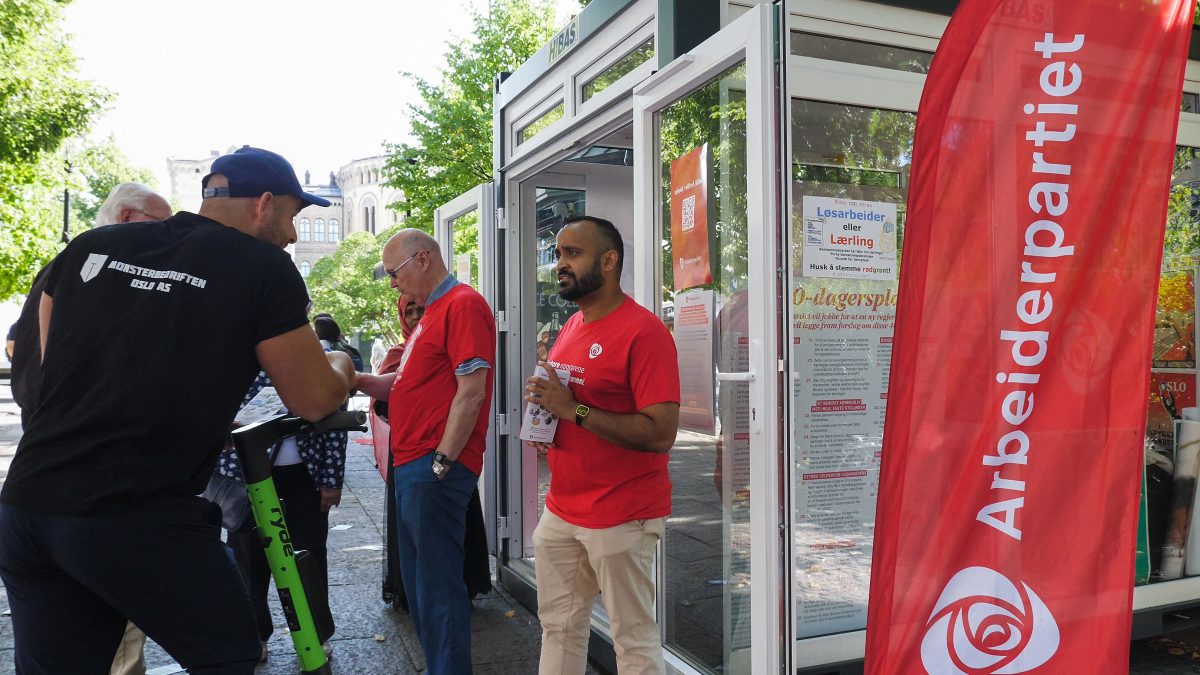Norwegians is voting for the polls on Monday (Sept 8) in an election where US President Donald Trump’s tariffs and the war in Ukraine are emerging as a kry factor to the Labour government of Prime Minister Jonas Gahr Store.
Store, a veteran Labour leader, holds a slight edge in opinion polls. Analysts say global uncertainty could push voters toward the stability of the sitting administration.
Still, much of the campaign has focused on bread-and-butter issues — rising living costs, healthcare, inequality, education, and debate over abolishing a divisive wealth tax.
With Norway’s fragmented political landscape, the result will hinge on which of the nine main parties cross the four percent threshold for seats in parliament.
According to poll aggregator pollofpolls.no, Labour and its allies are projected to win 88 of the 169 seats in the Storting. Voting opened at 9 am (0700 GMT), with first projections due after polls close at 9 pm.
A record 1.9 million Norwegians, nearly half the electorate, cast ballots early.
“Stability is really important. The security situation in the world is quite unstable, it’s quite an unstable world,” pensioner Olav Hetland told AFP.
Political scientist Johannes Bergh said Store’s long experience in foreign affairs could play to his advantage: “The fact that Donald Trump was elected president in the United States, the talk about tariffs, and international trade is much more uncertain, there’s a war in Ukraine — all of those international issues make voters rally around the sitting government.”
Left bloc divisions
Store leads a single-party minority government but gained ground earlier this year after ending an unpopular coalition with the Centre Party and bringing back popular ex-NATO chief Jens Stoltenberg.
To secure a majority, Store will likely need support from four other left-leaning parties. Yet the bloc is split over oil drilling — Labour wants to continue, while the Greens push to phase it out. They also clash on ties with the European Union. Labour and the Greens support eventual EU membership, while the Centre and far-left oppose it, reflecting wider public skepticism.
Impact Shorts
More ShortsThe far left also wants Norway’s giant sovereign wealth fund to divest from Israel, a move Labour rejects.
Julie Myrene, 32, who works in customer support, said her vote was shaped by tax cuts: “Because a lot of wealthy Norwegians have moved out.”
The right-wing bloc faces its own challenges. Former prime minister Erna Solberg’s Conservatives have slipped behind the anti-immigration Progress Party in polls. Solberg is now in a close fight with Progress leader Sylvi Listhaug to lead the bloc if it wins.
The bloc also includes two smaller centre-right parties, but they clash with Progress on climate policy, immigration, and EU ties.
Norway, a NATO member that shares a border with Russia, relies heavily on exports, making the outcome of this election significant both at home and abroad.
)